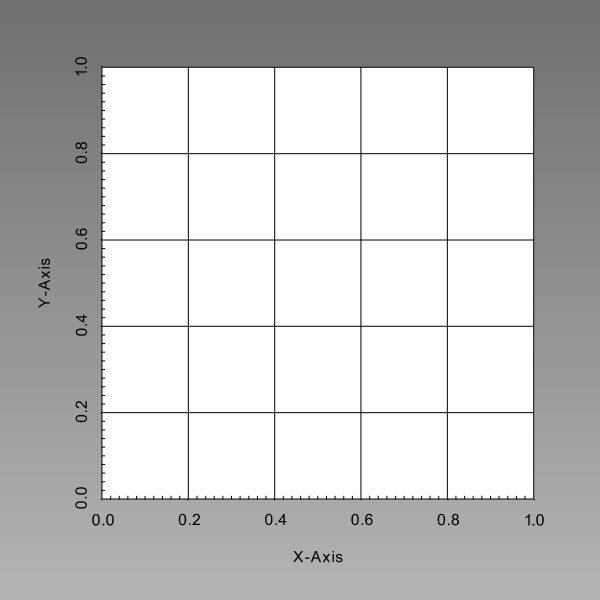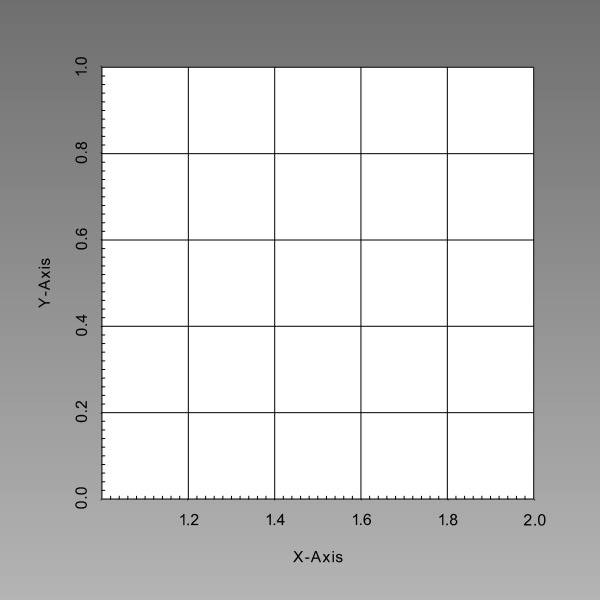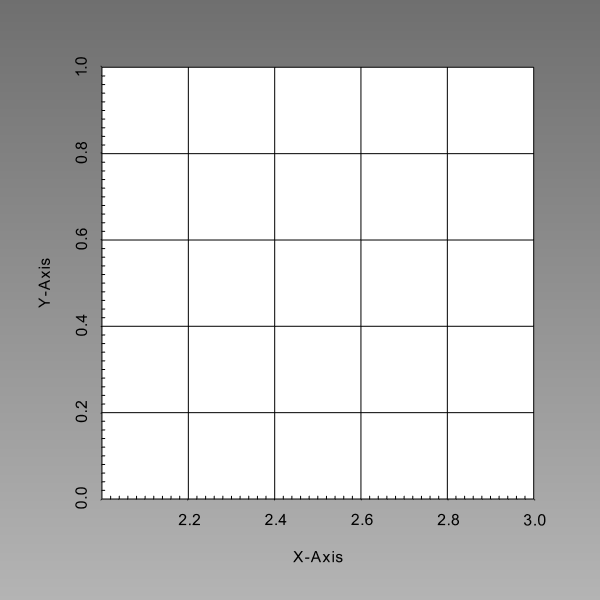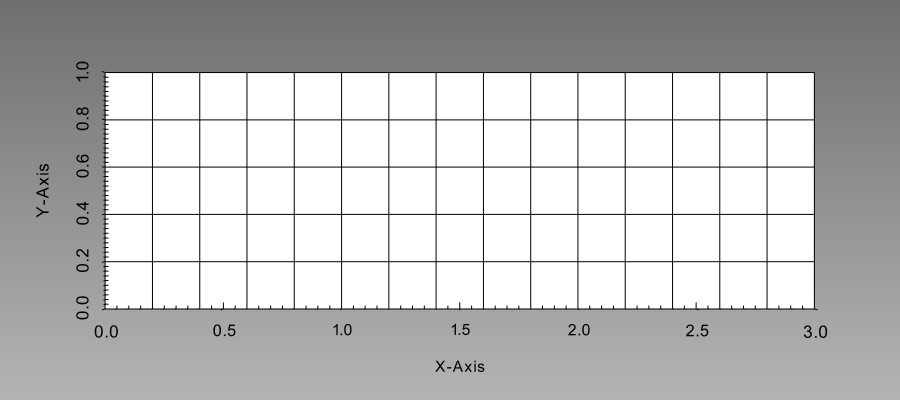- filesThe name of the mesh files to read. These mesh files will be 'stitched' into the current mesh in this order.
C++ Type:std::vector
Description:The name of the mesh files to read. These mesh files will be 'stitched' into the current mesh in this order.
- stitch_boundariesPairs of boundary names (one after the other) to stitch together for each step.
C++ Type:std::vector
Description:Pairs of boundary names (one after the other) to stitch together for each step.
StitchedMesh
Reads in all of the given meshes and stitches them all together into one mesh.
Overview
The StitchedMesh object allows for multiple mesh files to be "stitched" together to form a single mesh for use in a simulation. For example, consider the following three meshes.

Fig. 1: Left portion of "stitched" mesh (left.e).

Fig. 2: Center portion of "stitched" mesh (center.e).

Fig. 3: Right portion of "stitched" mesh (right.e).
Using the StitchedMesh object from within the Mesh block of the input file, as shown in the input file snippet below, these three square meshes are joined into a single mesh as shown in Figure 4.
[Mesh]
type = StitchedMesh
files = 'left.e center.e right.e'
stitch_boundaries = 'right left right left'
parallel_type = 'replicated'
[]
Fig. 4: Resulting "stitched" mesh from combination of three square meshes.
Input Parameters
- clear_stitched_boundary_idsTrueWhether or not to erase the boundary IDs after they've been used for stitching.
Default:True
C++ Type:bool
Description:Whether or not to erase the boundary IDs after they've been used for stitching.
- parallel_typeDEFAULTDISTRIBUTED: Always use libMesh::DistributedMesh REPLICATED: Always use libMesh::ReplicatedMesh DEFAULT: Use libMesh::ReplicatedMesh unless --distributed-mesh is specified on the command line
Default:DEFAULT
C++ Type:MooseEnum
Description:DISTRIBUTED: Always use libMesh::DistributedMesh REPLICATED: Always use libMesh::ReplicatedMesh DEFAULT: Use libMesh::ReplicatedMesh unless --distributed-mesh is specified on the command line
- ghosting_patch_sizeThe number of nearest neighbors considered for ghosting purposes when 'iteration' patch update strategy is used. Default is 5 * patch_size.
C++ Type:unsigned int
Description:The number of nearest neighbors considered for ghosting purposes when 'iteration' patch update strategy is used. Default is 5 * patch_size.
- max_leaf_size10The maximum number of points in each leaf of the KDTree used in the nearest neighbor search. As the leaf size becomes larger,KDTree construction becomes faster but the nearest neighbor searchbecomes slower.
Default:10
C++ Type:unsigned int
Description:The maximum number of points in each leaf of the KDTree used in the nearest neighbor search. As the leaf size becomes larger,KDTree construction becomes faster but the nearest neighbor searchbecomes slower.
- allow_renumberingTrueIf allow_renumbering=false, node and element numbers are kept fixed until deletion
Default:True
C++ Type:bool
Description:If allow_renumbering=false, node and element numbers are kept fixed until deletion
Optional Parameters
- partitionerdefaultSpecifies a mesh partitioner to use when splitting the mesh for a parallel computation.
Default:default
C++ Type:MooseEnum
Description:Specifies a mesh partitioner to use when splitting the mesh for a parallel computation.
- centroid_partitioner_directionSpecifies the sort direction if using the centroid partitioner. Available options: x, y, z, radial
C++ Type:MooseEnum
Description:Specifies the sort direction if using the centroid partitioner. Available options: x, y, z, radial
Partitioning Parameters
- dim1This is only required for certain mesh formats where the dimension of the mesh cannot be autodetected. In particular you must supply this for GMSH meshes. Note: This is completely ignored for ExodusII meshes!
Default:1
C++ Type:MooseEnum
Description:This is only required for certain mesh formats where the dimension of the mesh cannot be autodetected. In particular you must supply this for GMSH meshes. Note: This is completely ignored for ExodusII meshes!
- enableTrueSet the enabled status of the MooseObject.
Default:True
C++ Type:bool
Description:Set the enabled status of the MooseObject.
- patch_update_strategyneverHow often to update the geometric search 'patch'. The default is to never update it (which is the most efficient but could be a problem with lots of relative motion). 'always' will update the patch for all slave nodes at the beginning of every timestep which might be time consuming. 'auto' will attempt to determine at the start of which timesteps the patch for all slave nodes needs to be updated automatically.'iteration' updates the patch at every nonlinear iteration for a subset of slave nodes for which penetration is not detected. If there can be substantial relative motion between the master and slave surfaces during the nonlinear iterations within a timestep, it is advisable to use 'iteration' option to ensure accurate contact detection.
Default:never
C++ Type:MooseEnum
Description:How often to update the geometric search 'patch'. The default is to never update it (which is the most efficient but could be a problem with lots of relative motion). 'always' will update the patch for all slave nodes at the beginning of every timestep which might be time consuming. 'auto' will attempt to determine at the start of which timesteps the patch for all slave nodes needs to be updated automatically.'iteration' updates the patch at every nonlinear iteration for a subset of slave nodes for which penetration is not detected. If there can be substantial relative motion between the master and slave surfaces during the nonlinear iterations within a timestep, it is advisable to use 'iteration' option to ensure accurate contact detection.
- control_tagsAdds user-defined labels for accessing object parameters via control logic.
C++ Type:std::vector
Description:Adds user-defined labels for accessing object parameters via control logic.
- nemesisFalseIf nemesis=true and file=foo.e, actually reads foo.e.N.0, foo.e.N.1, ... foo.e.N.N-1, where N = # CPUs, with NemesisIO.
Default:False
C++ Type:bool
Description:If nemesis=true and file=foo.e, actually reads foo.e.N.0, foo.e.N.1, ... foo.e.N.N-1, where N = # CPUs, with NemesisIO.
- construct_node_list_from_side_listTrueWhether or not to generate nodesets from the sidesets (usually a good idea).
Default:True
C++ Type:bool
Description:Whether or not to generate nodesets from the sidesets (usually a good idea).
- patch_size40The number of nodes to consider in the NearestNode neighborhood.
Default:40
C++ Type:unsigned int
Description:The number of nodes to consider in the NearestNode neighborhood.